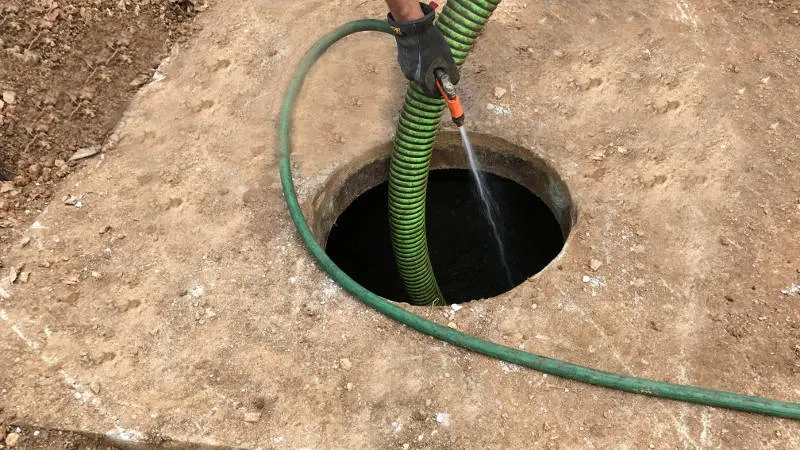Septic tank systems are a common wastewater treatment solution for homes in areas without access to municipal sewage services. While septic systems are practical and effective, they often come with misconceptions and myths that can lead homeowners astray. These myths can result in improper maintenance practices and even system failures. In this article, we aim to debunk some of the most prevalent septic tank pumping myths, helping you separate fact from fiction and ensure the longevity and efficiency of your septic system.
Myth 1: My Septic Tank Will Never Need Pumping
One of the most persistent myths is that a septic tank will never need pumping. Some homeowners believe that septic tanks can break down waste entirely, eliminating the need for maintenance. This myth is far from the truth.
Fact: Septic tanks are designed to separate solids from wastewater, but they do not completely break down all waste. Over time, solid materials, known as sludge, accumulate at the bottom of the tank. If not removed through regular pumping, this sludge can lead to clogs, backups, and system failures.
Myth 2: Septic Tank Additives Eliminate the Need for Pumping
Many products on the market claim to contain special additives that can break down waste in your septic tank, eliminating the need for pumping. While these products may sound appealing, they often fall short of their promises.
Fact: Septic tank additives may provide some benefits in terms of bacterial activity, but they cannot replace the need for septic tank pumping. Proper maintenance, including scheduled pump-outs, remains essential to prevent system issues and costly repairs.
Myth 3: Septic Tank Pumping Is a One-Time Task
Some homeowners mistakenly believe that septic tank pumping is a one-time task, only necessary when problems arise. They may think that once the tank is pumped, it will remain trouble-free indefinitely.
Fact: Septic tank pumping is not a one-time task. The frequency of pumping depends on various factors, such as household size, tank size, water usage, and more. Regular maintenance, including scheduled pump-outs, is crucial to prevent issues and maintain system efficiency.
Myth 4: Septic Tank Pumping Should Only Occur When There Are Problems
Some homeowners believe that septic tank pumping is only necessary when they notice problems, such as slow drains or backups. They may wait until these issues occur before considering pumping.
Fact: Waiting until problems arise is not the recommended approach to septic tank maintenance. By the time you notice issues, significant damage or system failure may have already occurred. Regular, scheduled pumping helps prevent problems and extends the life of your septic system.
Myth 5: It’s Safe to Pump Your Septic Tank Yourself
DIY enthusiasts may believe that septic tank pumping is a straightforward task that can be easily handled without professional assistance. They might think that renting equipment and doing it themselves will save money.
Fact: Pumping a septic tank is not a simple DIY task, and it can be dangerous. It involves handling potentially hazardous materials, exposure to harmful gases, and the use of specialized equipment. Improper pumping can lead to contamination, health risks, and damage to your septic system. It’s advisable to hire professional septic service companies with the expertise and equipment needed for safe and effective pumping.
Myth 6: Septic Tank Pumping Is Harmful to the Environment
Some individuals worry that pumping a septic tank will harm the environment by releasing untreated waste into the surroundings, especially if they are not familiar with the process.
Fact: Professional septic service companies are equipped to handle the waste removal process responsibly. They pump the septic tank and transport the waste to licensed treatment facilities, where it undergoes proper processing and disposal. Septic tank pumping, when done correctly, poses no significant harm to the environment.
Myth 7: All Septic Tank Pumping Services Are the Same
Some homeowners believe that all septic tank pumping services offer the same level of quality and expertise, assuming there is no need to research or choose carefully among providers.
Fact: Septic tank pumping services can vary significantly in terms of experience, equipment, and quality of service. It’s essential to research and select a reputable and experienced septic service company that adheres to local regulations and environmental standards.
Myth 8: Pumping a Septic Tank Requires Frequent Use of Chemicals
Another common myth is that regularly adding chemicals, such as bleach or commercial products, to your septic system will reduce the need for pumping.
Fact: Frequent use of chemicals in your septic system can disrupt the natural balance of bacteria that break down waste. While some chemicals may be safe in moderation, excessive use can harm your septic system and lead to the need for more frequent pumping. Proper maintenance and responsible waste disposal are more effective ways to extend the time between pump-outs.
Myth 9: Pumping Your Septic Tank Will Solve Drain Field Issues
Homeowners experiencing problems with their drain field may believe that pumping the septic tank will resolve these issues, eliminating the need for costly drain field repairs.
Fact: While septic tank pumping is essential for preventing sludge buildup, it does not address drain field problems. If your drain field is failing, it requires a separate assessment and potentially costly repairs. Neglecting drain field issues can lead to more significant problems down the line.
Conclusion
Dispelling common septic tank pumping myths is crucial for the proper maintenance and care of your septic system. Understanding that regular pumping is necessary, additives are not a replacement, and professional services are essential can help you avoid costly repairs and system failures. By staying informed and following recommended maintenance practices, you can ensure the longevity and efficiency of your septic system, protecting both your property and the environment.


Comment here